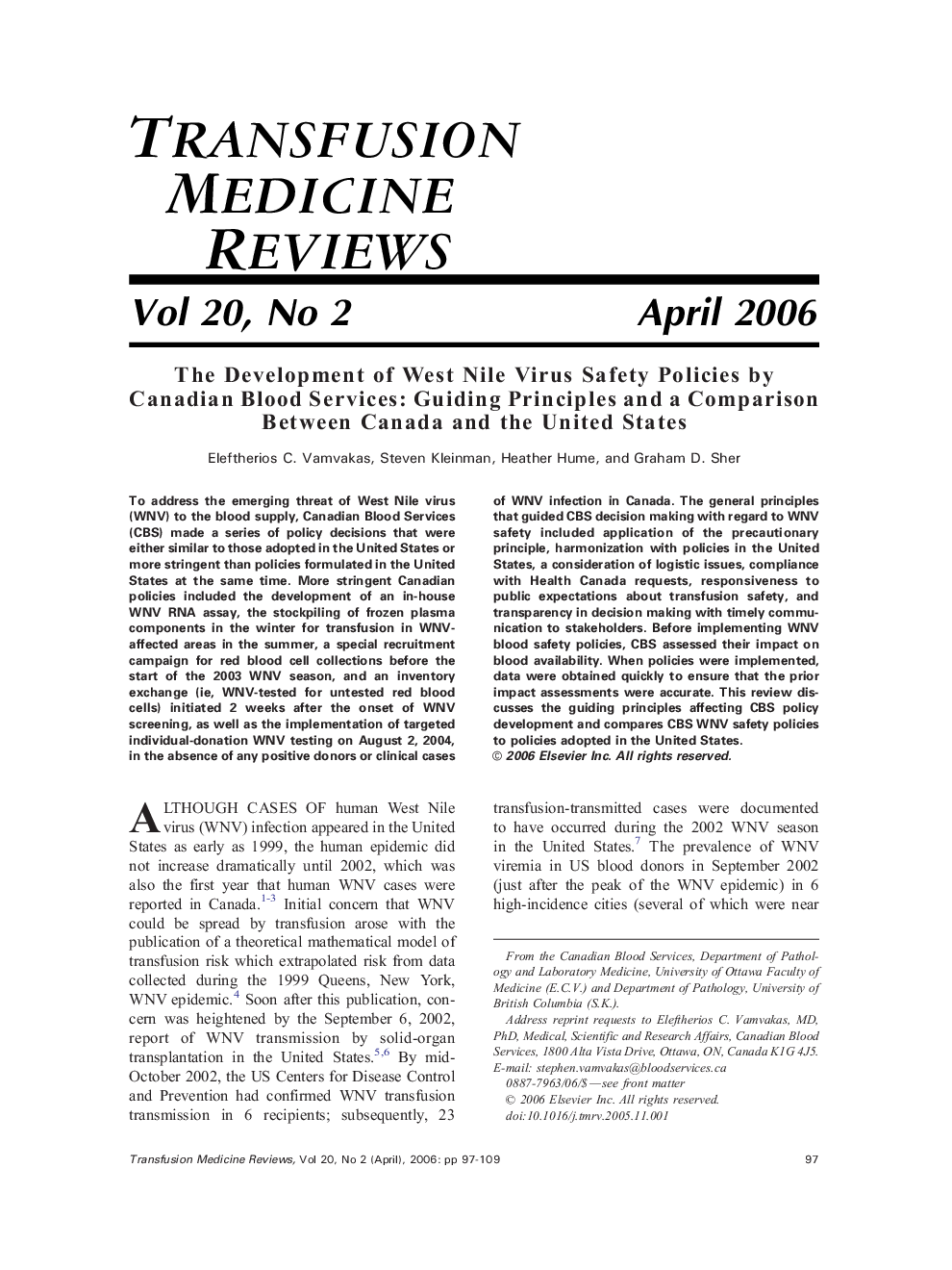| Article ID | Journal | Published Year | Pages | File Type |
|---|---|---|---|---|
| 3337007 | Transfusion Medicine Reviews | 2006 | 13 Pages |
Abstract
To address the emerging threat of West Nile virus (WNV) to the blood supply, Canadian Blood Services (CBS) made a series of policy decisions that were either similar to those adopted in the United States or more stringent than policies formulated in the United States at the same time. More stringent Canadian policies included the development of an in-house WNV RNA assay, the stockpiling of frozen plasma components in the winter for transfusion in WNV-affected areas in the summer, a special recruitment campaign for red blood cell collections before the start of the 2003 WNV season, and an inventory exchange (ie, WNV-tested for untested red blood cells) initiated 2 weeks after the onset of WNV screening, as well as the implementation of targeted individual-donation WNV testing on August 2, 2004, in the absence of any positive donors or clinical cases of WNV infection in Canada. The general principles that guided CBS decision making with regard to WNV safety included application of the precautionary principle, harmonization with policies in the United States, a consideration of logistic issues, compliance with Health Canada requests, responsiveness to public expectations about transfusion safety, and transparency in decision making with timely communication to stakeholders. Before implementing WNV blood safety policies, CBS assessed their impact on blood availability. When policies were implemented, data were obtained quickly to ensure that the prior impact assessments were accurate. This review discusses the guiding principles affecting CBS policy development and compares CBS WNV safety policies to policies adopted in the United States.
Related Topics
Health Sciences
Medicine and Dentistry
Hematology
Authors
Eleftherios C. Vamvakas, Steven Kleinman, Heather Hume, Graham D. Sher,
